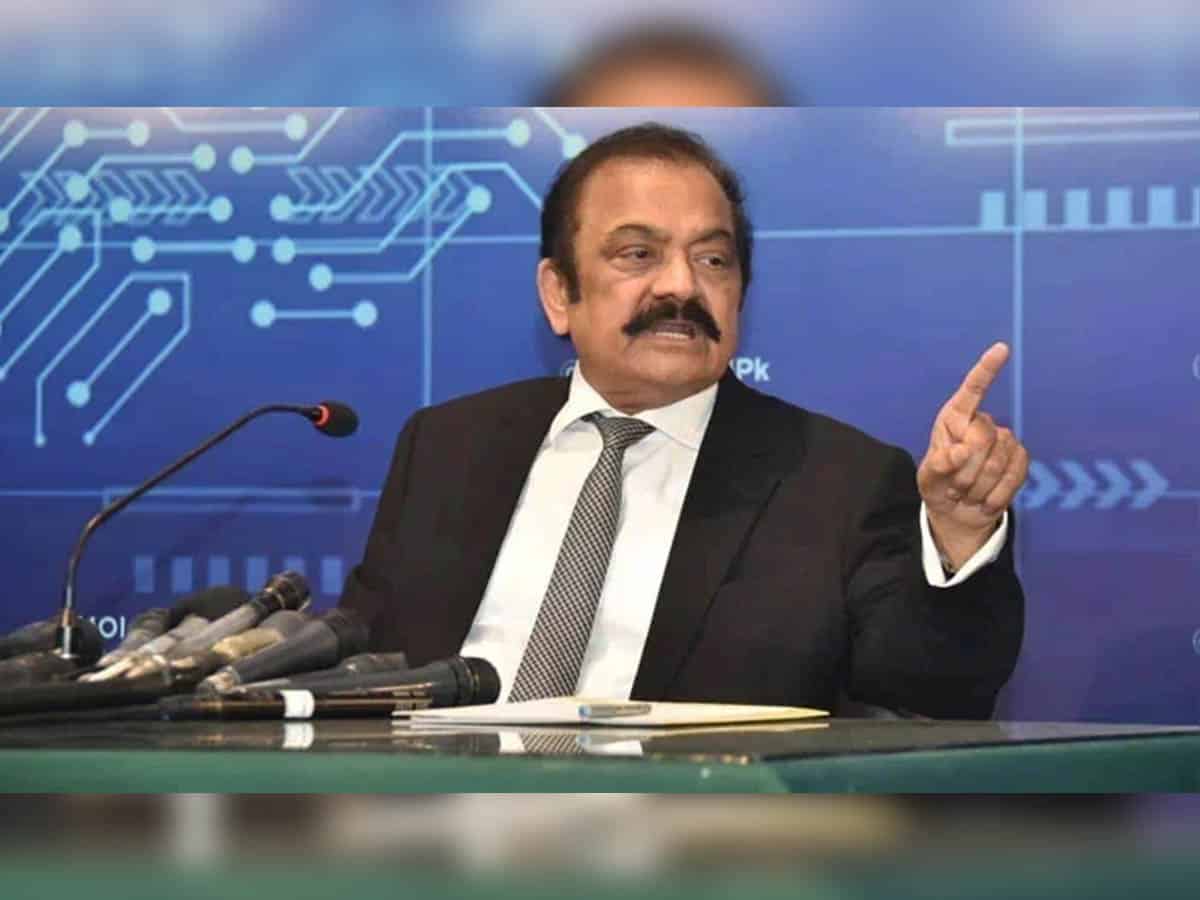
Islamabad: Pakistan’s Interior Minister Rana Sanaullah on Friday said that only 33 suspects have been handed over to authorities so far to be tried by military courts for their alleged involvement in the attacks on sensitive defence installations during the May 9 protests following the arrest of former prime minister Imran Khan.
Thousands of supporters of the Pakistan Tehreek-e-Insaf (PTI) party ransacked and set ablaze military and civilian buildings after party chief Khan was arrested from the Islamabad High Court in a case of alleged corruption, following which a crackdown was launched to arrest and punish the perpetrators.
Amidst criticism from local and international rights groups, Pakistan started the legal process to prosecute those involved in the violence under military and civilian laws.
Sanaullah, at a press conference, provided details about the number of people arrested and handed over to the military for trial under the stringent military regulations for attacking the Army’s facilities.
“So far, only 19 accused have been handed over to the military courts or military officials in Punjab and 14 in Khyber Pakhtunkhwa,” he said.
The minister said that police registered 499 First Information Reports (FIRs) at various police stations, and only six of them, including two in Punjab and four in Khyber Pakhtunkhwa (KP) provinces, are being processed for a possible trial in the military courts.
“But an atmosphere is being created as if all are being tried in military courts,” he said.
Asserting that only those involved in attacks on military installations would be tried under military laws, Sanaullah said that no innocent person would be harmed.
He clarified that military officials would investigate the cases but would not start prosecution until it was determined where the Army Act or the Official Secrets Act would be applicable.
Providing details of the FIRs, he said 88 cases were registered under the Anti-Terrorism Act and the remaining 411 under other charges, like vandalism, arson or interfering in state matters. Sanaullah added that around 3,950 people were arrested in cases registered under terrorism charges, including 2,588 in Punjab and almost 1,100 in Khyber Pakhtunkhwa.
The minister said another 5,536 people were arrested in the cases registered under other laws, but almost 80 per cent had already been released on bail.
During the May 9 protests, Khan’s party workers vandalised a dozen military installations, including the Lahore Corps Commander’s House, the Mianwali airbase and the ISI building in Faisalabad in response to his arrest.
The mob also stormed the Army headquarters (GHQ) in Rawalpindi for the first time, and statues of martyrs were vandalised.
Police put the death toll in violent clashes to 10, while Khan’s party claims 40 of its workers lost their lives in the firing by security personnel.
Thousands of Khan’s supporters were arrested following the violence that the powerful Army described as a “dark day” in the history of the country.
Prime Minister Shehbaz Sharif has said that those involved in attacks on military installations would be tried in the military courts while those charged with attacks on civilian targets would be prosecuted under civilian laws.
Defence Minister Khawaja Asif said on Wednesday the government was mulling a possible ban on Khan’s PTI party following the attacks by his supporters on military installations after the former prime minister’s arrest.
On Thursday, Pakistan Army chief General Asim Munir said that the nation will “neither forgive nor forget” those involved in the attacks on the “memorials of martyrs”.
Khan was ousted from power in April last year after losing a no-confidence vote in his leadership, which he alleged was part of a US-led conspiracy targeting him because of his independent foreign policy decisions on Russia, China and Afghanistan.
